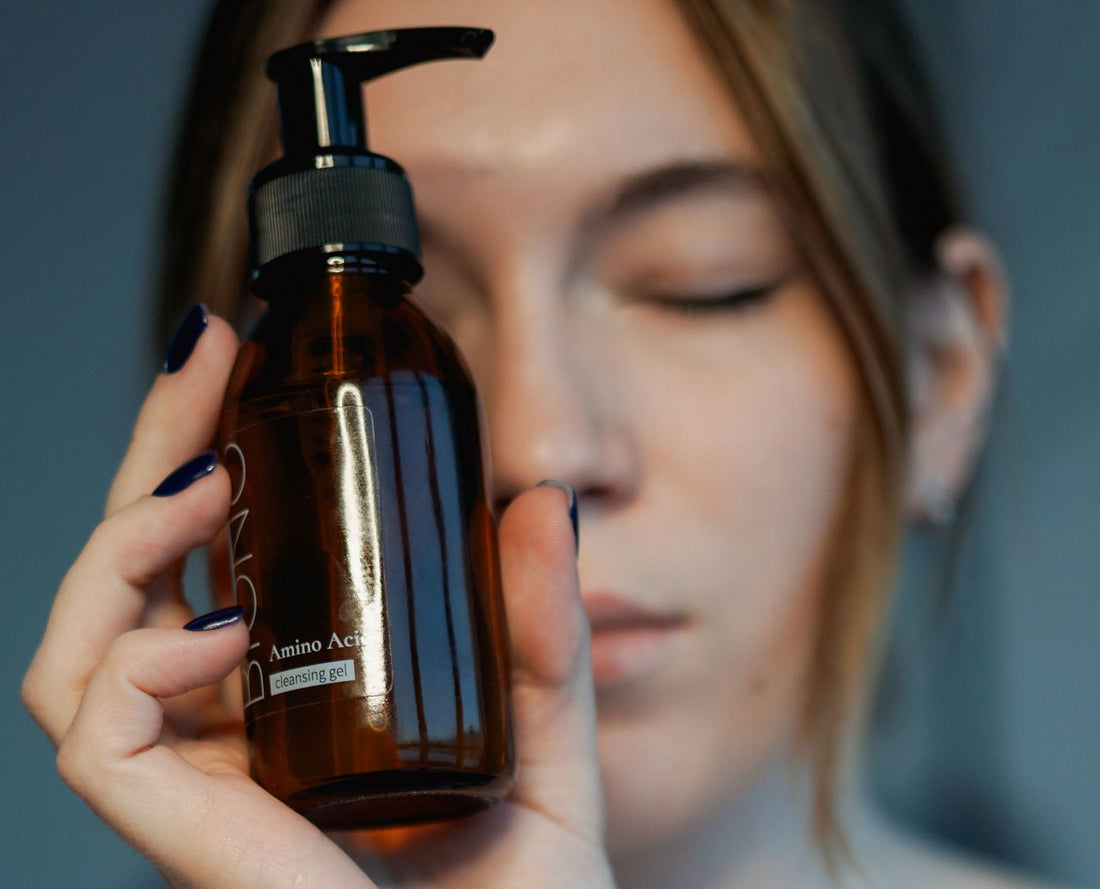
Retinoids for the face: benefits, risks and how to use them correctly
Retinoids are some of the most effective ingredients in cosmetology, used to combat signs of aging, acne and pigmentation. Thanks to their ability to stimulate cell renewal, they improve skin texture, even out skin tone and increase elasticity. However, like any active ingredient, retinoids need to be properly incorporated into your skincare routine. Improper use can lead to irritation, dryness and increased sensitivity to the sun.
What are retinoids?
Retinoids are derivatives of vitamin A used in cosmetology and dermatology to combat wrinkles, acne, uneven skin tone, and hyperpigmentation. They are among the most effective anti-aging ingredients, as they stimulate cell renewal, accelerate tissue regeneration, and improve skin texture.
These active ingredients are divided into several types depending on the form and intensity of action. For example, retinol is the mildest option, suitable for home care. Retinaldehyde has a faster effect, and tretinoin is the most active retinoid, which is often used in the treatment of acne.

The main advantage of retinoids is their comprehensive effect on the skin. They not only reduce wrinkles and improve skin elasticity, but also even out skin tone, help fight breakouts, and tighten pores. Regular use of retinoids makes the skin smoother, brighter, and healthier.
However, retinoids require caution when used. They can cause dryness, irritation, or peeling, especially if introduced too quickly or without proper hydration. Therefore, it is important to understand the types of retinoids, their effects, and how to use them safely before starting.
Types of retinoids: what are they and how do they differ?
Retinoids are active derivatives of vitamin A that play a key role in skin care. They come in different forms and concentrations, allowing them to be tailored to the needs of the skin – from light cosmetics to medical preparations. Retinoids can be conventionally divided into systemic (for internal use) and topical (for external use).
Systemic retinoids: treatment of acne and dermatological problems
Systemic retinoids are drugs taken orally in the form of capsules or tablets. They are used in cases of severe acne, rosacea, psoriasis and other chronic skin diseases. The most famous representative of this group is isotretinoin, which effectively regulates sebum production, reduces inflammation and stimulates cell renewal.
Main characteristics of systemic retinoids:
- Used only as prescribed by a doctor.
- They have a long-lasting effect, but can cause side effects (dry skin, increased sensitivity to the sun).
- Prohibited for use during pregnancy due to the risk of negative effects on fetal development.
Topical Retinoids: Facial Skin Care
Topical retinoids are cosmetic and medical products in the form of creams, serums, and gels that are applied directly to the skin. They stimulate cell turnover, reduce wrinkles, fight acne, and improve skin texture.
The main types of topical retinoids include:
- Retinol is the mildest and most popular option. It gradually converts to its active form in the skin, so it works more slowly but is less irritating.
- Retinaldehyde is more active than retinol and provides visible results faster. Suitable for people who already have experience using retinoids.
- Tretinoin (retinoic acid) is the strongest topical retinoid, often used for acne treatment and anti-aging care. It is highly effective, but can also cause skin irritation and peeling.
- Adapalene is a modern retinoid that is gentle and less likely to cause irritation. It is used in the treatment of acne, helps regulate sebum and prevents clogged pores.
Retinoids for the face: what are their benefits?
Retinoids are one of the most powerful ingredients in skincare , helping to address a number of concerns at once: aging, acne, pigmentation, and uneven texture. With their ability to accelerate cell turnover and regulate sebum production, retinoids have become a staple in anti-aging and problem skin care.
1. Reduce wrinkles and increase skin elasticity
One of the main benefits of retinoids is their ability to stimulate the synthesis of collagen and elastin. These proteins are responsible for the elasticity and smoothness of the skin, so their production naturally decreases with age. Using retinoids helps:
- Smooth out fine wrinkles and prevent the appearance of new ones.
- Strengthen skin turgor, making it more dense and toned.
- Improve the microrelief of the face, making it more even.
Regular use of retinoids can noticeably improve skin condition after 8-12 weeks, but the maximum effect is seen after 6-12 months.
2. Fights acne and controls sebum production
Retinoids have powerful sebum-regulating and anti-inflammatory properties, making them indispensable in the fight against acne. They work in several ways:
- Reduces the activity of the sebaceous glands, preventing excessive oily shine.
- Prevents clogged pores, reducing the risk of comedones and blackheads.
- Accelerates the healing of inflammation, reducing redness and irritation.
Some forms of retinoids, such as adapalene and tretinoin, are included in prescription acne medications and are recommended by dermatologists for long-term acne control.
3. Lightens age spots and evens out skin tone
Retinoids affect melanin production, making them effective in combating:
- Hyperpigmentation caused by sun exposure or age-related changes.
- Post-acne marks that often remain after inflammation.
- Uneven skin tone, adding freshness and radiance.
Retinoids speed up cell turnover, making age spots less noticeable and the overall complexion evens out. For maximum effect, it is important to combine retinoids with sunscreen to prevent re-pigmentation.
4. Accelerates cell renewal and gives skin a glow
As skin ages, the cell renewal process slows down, leading to a dull appearance and loss of natural radiance. Retinoids help:
- Remove dead cells, making the skin look fresh and healthy.
- Reduce flaking and roughness, making it smoother.
- Enhance facial radiance, eliminating gray tones and signs of fatigue.
Regular use of retinoids, combined with moisturizing and sun protection, helps to achieve smooth, radiant, and well-groomed skin.
How harmful are retinoids: possible risks and side effects
Despite their many benefits, retinoids also come with some risks, especially if used incorrectly or without proper skin preparation. It's important to remember that these active ingredients affect the cell turnover process, which can cause certain reactions on the skin. Following the rules for using retinoids will help minimize the risks and avoid unwanted side effects.
1. Dryness, peeling and irritation of the skin
One of the most common side effects of retinoids is dry skin. In the initial stages of use, your skin may react with peeling, redness, tightness, and even mild itching. This is because retinoids speed up cell turnover, causing old skin to slough off more quickly than usual.
To reduce dryness and discomfort, it is important to:
- Start with the lowest concentration of retinoids and gradually increase it.
- Use moisturizers with ceramides, hyaluronic acid, and panthenol.
- Apply retinoids every day or two at the initial stage to allow the skin to adapt.
2. Increased sensitivity to the sun
Retinoids can significantly increase the skin's sensitivity to UV radiation, which increases the risk of age spots, sunburn, and premature skin aging. Therefore, using sunscreen (SPF 50) is a must-have step if you have retinoids in your routine.
- Use retinoids only in your evening skincare routine to reduce the risk of photodamage.
- Be sure to apply sunscreen with a high SPF in the morning and avoid prolonged exposure to the sun.
- In the summer, you can reduce the frequency of retinoid use to reduce the risk of irritation.
3. Individual intolerance and allergic reactions
In some cases, retinoids can cause individual intolerance, which manifests itself in the form of severe redness, swelling, rashes or itching. This may be a signal of an allergic reaction or that the skin is not yet ready for such active ingredients.
How to avoid irritation:
- Before first use, perform a sensitivity test by applying a little product to a small area of skin.
- Use moisturizers and barrier creams to maintain the skin's protective layer.
- If irritation does not go away after a few weeks, reduce the concentration or stop using the retinoid.
4. Prohibition of use during pregnancy and breastfeeding
Some retinoids (especially systemic ones such as isotretinoin) can negatively affect fetal development, causing serious birth defects. For this reason, they are strictly prohibited during pregnancy and breastfeeding.
If you are planning a pregnancy or are already expecting a baby, it is important to:
- Eliminate retinoids from your skincare routine completely and switch to safer alternatives such as vitamin C or azelaic acid.
- If using systemic retinoids, discontinue use at least 3 months before planning pregnancy.
- Consult a dermatologist before introducing any active ingredients into your skincare routine during pregnancy.
5. The "retinoid dermatitis" effect of overuse
If you use too high a concentration of retinoids or apply them too often, you can get retinoid dermatitis, a condition where the skin becomes hypersensitive, red, inflamed, and severely flaky.
To avoid this effect:
- Start with low doses and increase frequency gradually.
- Avoid combining retinoids with acids (AHA, BHA, PHA) in the initial stages.
- Take breaks from use if skin becomes too sensitive.

How to properly use retinoids in skin care?
Retinoids are a powerful ingredient in skincare that can significantly improve your skin’s condition when used correctly. However, because of their high potency, retinoids can cause irritation, dryness, or sensitivity, especially if they’re not used correctly. By following these basic rules of use, you can get the most benefit without the side effects.
The first and main principle is to start with a low concentration. For those who have not used retinoids before, you should choose retinol in a concentration of 0.2-0.5%, retinaldehyde 0.05-0.1% or tretinoin 0.025%. You need to start gradually, using the product once every 3-4 days for the first month. If the skin reacts well, the frequency can be increased to 2-3 times a week. After adaptation, you can switch to daily or every other day use, but only in the absence of severe peeling and irritation.
Retinoids should only be applied in the evening, as they are destroyed by sunlight. In addition, their use makes the skin more sensitive to ultraviolet rays, so applying sunscreen with SPF 50 in the morning is a mandatory step. Otherwise, you can get not only irritation, but also pigmentation.
In the initial stages, it is better not to combine retinoids with acids and vitamin C, as this combination can cause severe irritation and dryness. It is also important to include moisturizers with hyaluronic acid, ceramides and panthenol in your care to maintain the moisture balance in the skin.
To avoid side effects, retinoids should be introduced gradually. Initially, they should be used once or twice a week, observing the skin's reaction. If there is no irritation, you can increase the frequency. If severe peeling or redness occurs, you should reduce the number of uses or temporarily take a break.
Following these recommendations will help you get all the benefits of retinoids without the negative effects.
Conclusion: how to properly use retinoids for the face?
Retinoids are powerful derivatives of vitamin A that can significantly improve the condition of the skin when used correctly. They are effective in combating wrinkles, pigmentation and acne by stimulating cell renewal and collagen synthesis. However, to get the most benefit and avoid irritation, it is important to gradually introduce retinoids into your skin care routine, starting with the lowest concentrations and using them in combination with sunscreen and moisturizers.
Retinoids require a systematic approach, as results can take months to show. When used correctly, retinoids can help smooth, even, and firm skin, reduce signs of aging, and improve the overall appearance of your skin. Following all instructions for use, sun protection, and hydration will help you reap the benefits of retinoids without the risk of irritation.











